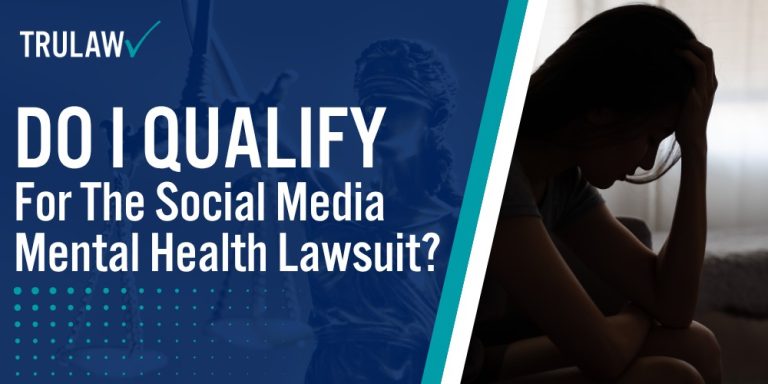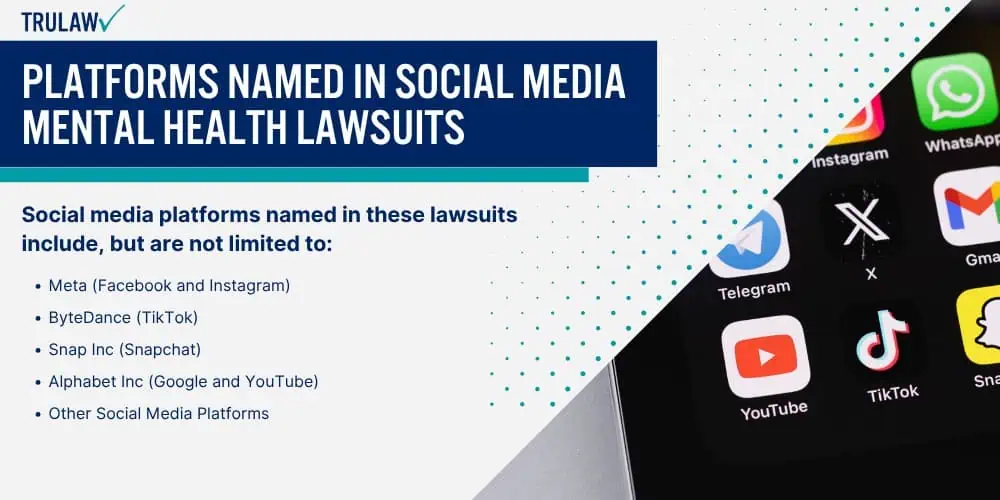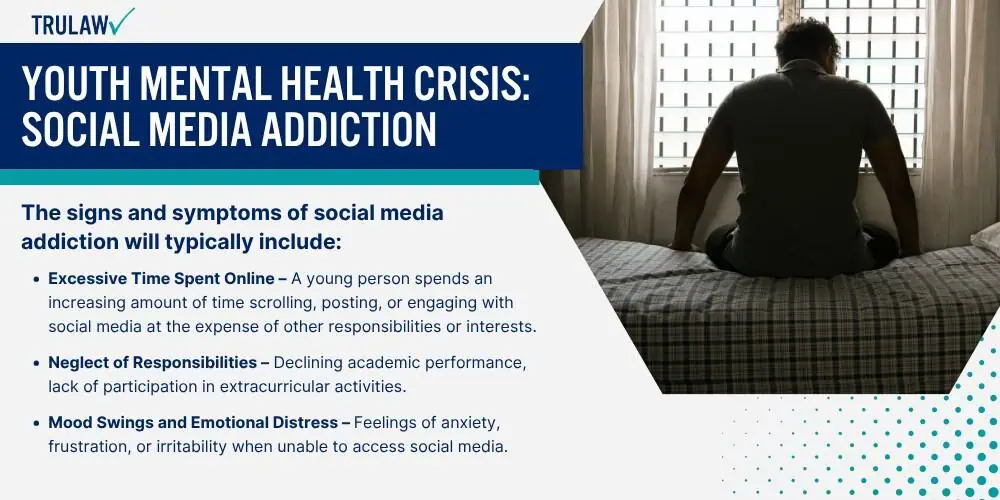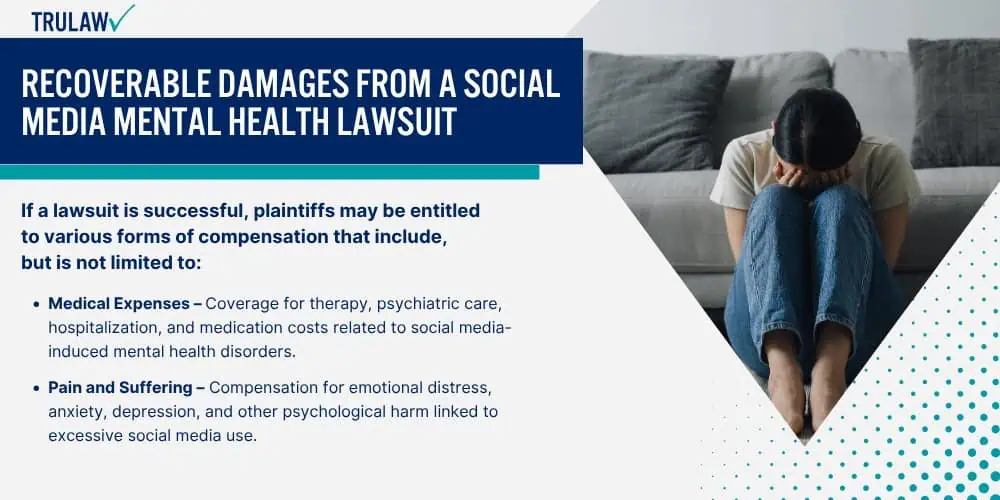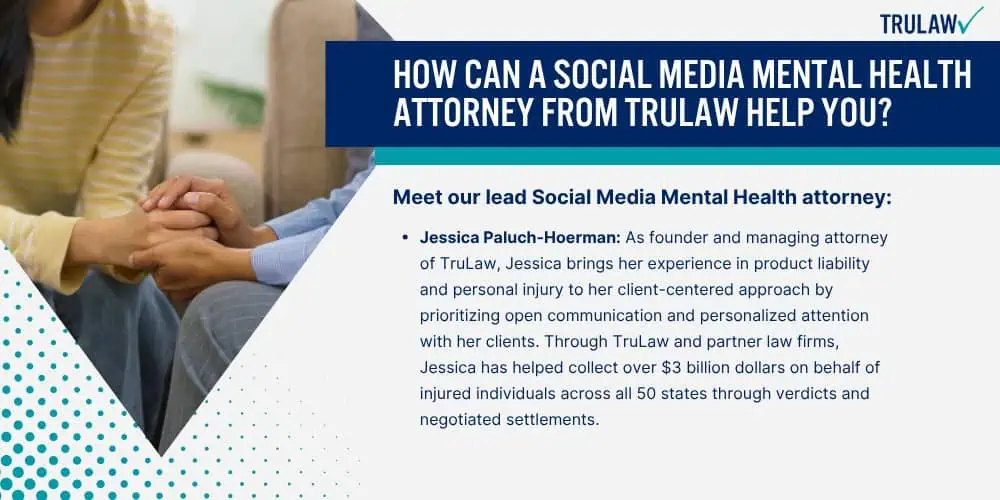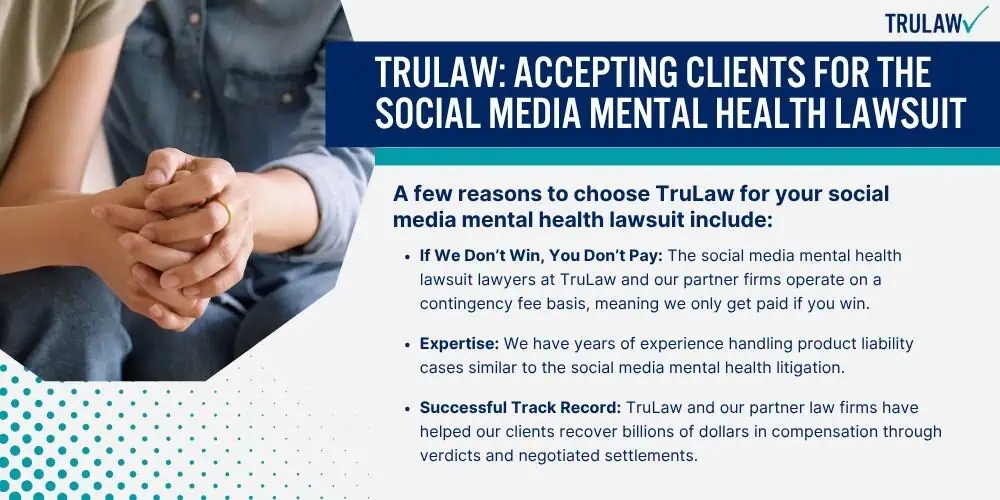The Social Media Addiction lawsuit centers on the claim that social media companies intentionally design their platforms to be addictive.
The allegation is that these platforms use psychological tactics (for example, endless scrolling feeds or frequent notifications) to keep users continually engaged for extended periods.
Social media use is almost universal among young people.
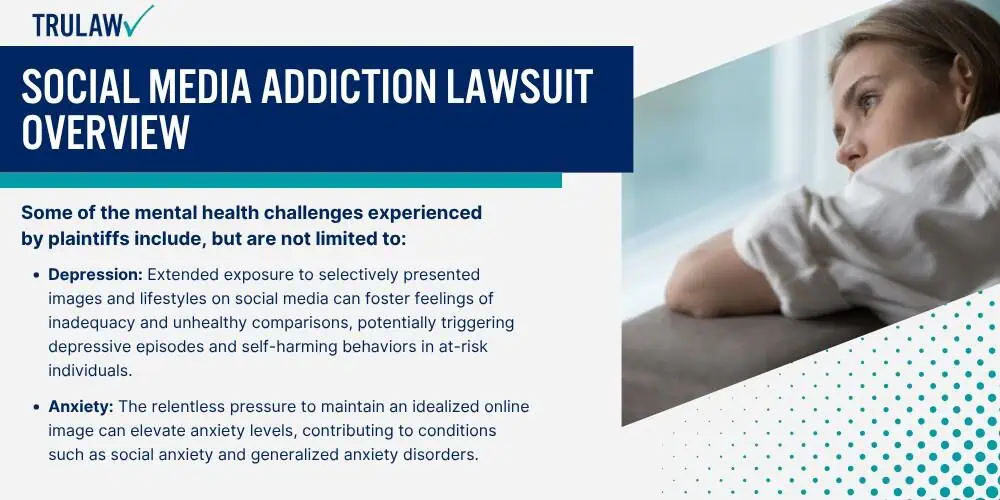
A Pew Research Center study titled “Social Media Use in 2021 ” reports that 84% of Americans ages 18–29 are actively using social media.
This high usage rate shows how deeply these platforms are embedded in young adults’ daily lives.
Plaintiffs in the lawsuit argue that the companies were negligent in safeguarding the well-being of their users – especially minors.
They claim that the absence of adequate safety measures or guidelines on these platforms contributed to the development of mental health issues among young users.
Social Media Addiction: Injuries Suffered by Victims
Social media addiction has become a growing concern, as its pervasive influence can deeply impact individuals’ mental and emotional well-being.
The constant barrage of idealized images and the pressure to maintain an impeccable online presence can disrupt everyday life and exacerbate underlying vulnerabilities that lead to serious injuries.
Some of the mental health challenges experienced by plaintiffs include, but are not limited to:
- Depression: Extended exposure to selectively presented images and lifestyles on social media can foster feelings of inadequacy and unhealthy comparisons, potentially triggering depressive episodes and self-harming behaviors in at-risk individuals.
- Anxiety: The relentless pressure to maintain an idealized online image can elevate anxiety levels, contributing to conditions such as social anxiety and generalized anxiety disorders.
- Body Dysmorphia: The omnipresence of unrealistic beauty standards on social platforms may lead to eating disorders or body dysmorphia, where individuals become fixated on perceived imperfections in their appearance.
- Low Self-Esteem: Overuse of social media can diminish self-worth as users constantly compare themselves to highly filtered and idealized portrayals of others.
- Suicidal Ideation: The interplay between mental health issues and excessive social media engagement can increase the risk of suicidal thoughts and ideation.
If you or someone you love has experienced social media addiction, you may be eligible to seek compensation.
Contact TruLaw using the chat on this page to receive an instant case evaluation that can determine if you qualify to join others in filing a social media mental health lawsuit today.
